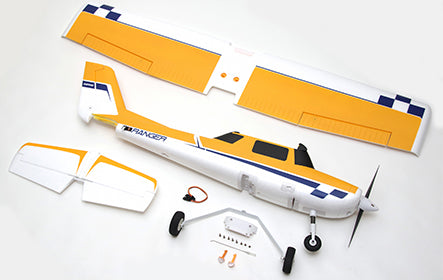Model airplanes have captivated enthusiasts for generations, evolving from simple constructions of sticks and cloth to sophisticated flying machines equipped with cutting-edge technology. This article delves into the rich history and advancements of model airplanes, highlighting their significance in the world of aviation and hobbyist culture.

Early Beginnings of Model Airplanes
The journey of model airplanes began in the early 20th century. Initially, these models were crafted from basic materials such as wood, paper, and cloth. Early aviators and hobbyists created these rudimentary models to understand the principles of flight. Have you ever wondered how these simple designs laid the groundwork for modern aerodynamics? The experimentation with different shapes and weights provided invaluable insights into flight mechanics.
Advancements in Materials and Design
As technology progressed, so did the materials used in model airplanes. The introduction of lightweight plastics and advanced composites revolutionized the design and performance of these models. Today, enthusiasts can choose from a variety of materials that enhance durability and flight capabilities. Here are some key advancements:
- Lightweight Composites: Materials such as carbon fiber and fiberglass have become popular for their strength and lightness.
- Precision Engineering: Computer-aided design (CAD) has allowed for more intricate and aerodynamic shapes.
- Electric Power Systems: The shift from traditional fuel engines to electric motors has made flying more accessible and environmentally friendly.
The Rise of Remote-Controlled (RC) Model Airplanes
With the advent of remote-control technology, model airplanes took a significant leap forward. RC model airplanes became a popular hobby, allowing enthusiasts to pilot their creations from a distance. This innovation not only enhanced the flying experience but also introduced a new level of complexity in design and operation. Would you like to know how these advancements have shaped the community of model airplane enthusiasts? The growth of clubs and competitions has fostered a vibrant culture around this hobby.
The Future: High-Tech Drones and Beyond
Today, the term "model airplanes" encompasses a wide range of flying devices, including high-tech drones. These drones are equipped with advanced features such as GPS, cameras, and autonomous flight capabilities. As technology continues to evolve, the possibilities for model airplanes are virtually limitless. Here are some trends shaping the future:
- Autonomous Flight: Drones are increasingly capable of flying without direct human control, thanks to sophisticated algorithms.
- FPV (First Person View) Flying: Pilots can experience flight from the drone's perspective using onboard cameras.
- Integration with AI: Artificial intelligence is being used to enhance navigation and obstacle avoidance.
For those interested in exploring the world of model airplanes, a great resource is  . This site offers a wide selection of RC airplanes and accessories, catering to both beginners and experienced pilots.
. This site offers a wide selection of RC airplanes and accessories, catering to both beginners and experienced pilots.
Conclusion
The evolution of model airplanes reflects not only advancements in technology but also the enduring passion of enthusiasts worldwide. From simple wooden models to sophisticated drones, the journey of model airplanes continues to inspire and engage hobbyists of all ages. As we look to the future, one can only imagine what innovations await in this exciting field.








